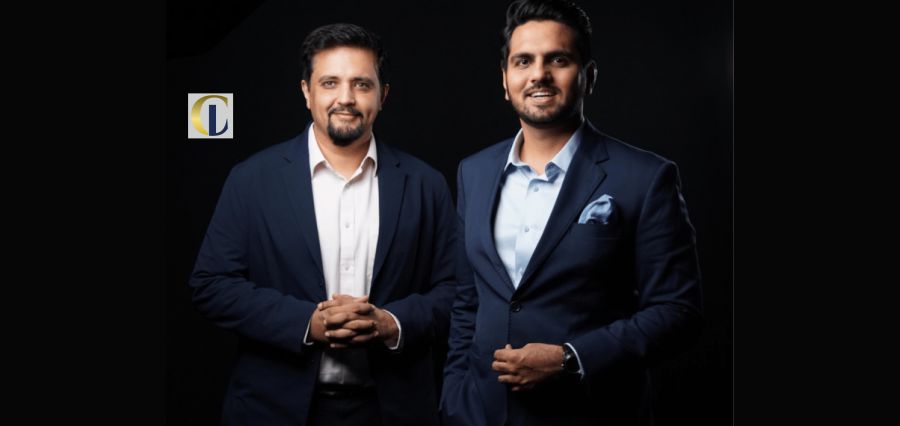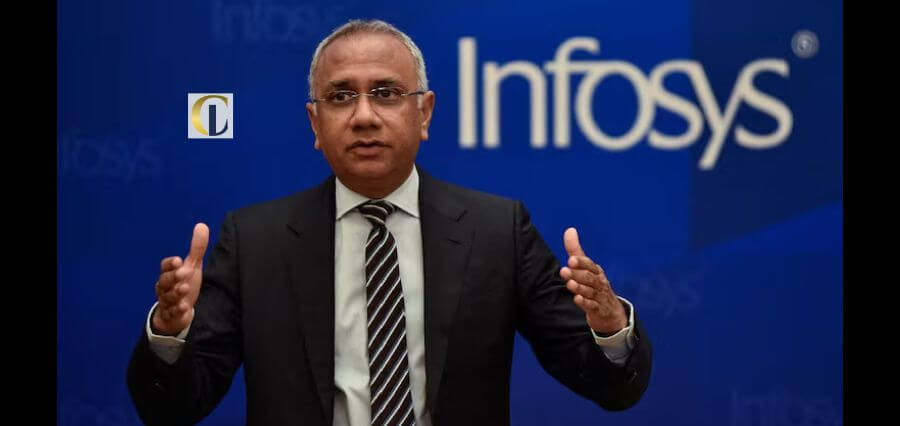Those Indian startups that understand business sustainability to create a better future are the most successful. That is why Mulyo, www.mulyo.in, as a sustainable, eco-friendly, and futuristic children’s wear brand, is one of India’s emerging startups making waves in the industry.
“Our journey as a sustainable kidswear startup began with a passion for positively impacting the environment and creating a better future for the next generation. As a fashion entrepreneur, I was increasingly aware of the environmental issues associated with the fashion industry and its impact on our planet,” says the Founder and CEO, Shambhavi Jaiswal.
Shambhavi adds that, motivated by a desire to contribute to a more sustainable and ethical way of living, she saw an opportunity to address the lack of eco-friendly options in the kidswear market. Children’s clothing is often outgrown quickly, leading to significant waste. Additionally, the conventional production methods and materials used in the industry contributed to environmental degradation.
We Live by Our Values
“The journey involved extensive research into sustainable fabrics, responsible production practices, and building partnerships with suppliers who shared our commitment to environmental and social responsibility.” It wasn’t just about creating another clothing brand but about building a community that valued conscious consumer choices and fostered a sense of responsibility towards the planet.
Co-founder Shivay Jaiswal adds, “Our journey is an ongoing commitment to innovation, education, and continuous improvement as we strive to redefine the kidswear market and inspire a shift towards sustainable practices in the fashion industry.”
Mulyo has emerged as India’s budding startup. Shambhavi says their success can be attributed to a guiding philosophy centred around these few core principles:
*Ethical and Sustainable Practices:
“Our commitment to ethical and sustainable practices is at the heart of everything we do. We prioritize environmentally friendly materials, eco-conscious manufacturing processes, and fair labour practices. By using organic fabrics, reducing waste, and ensuring transparency in our supply chain, we contribute to a healthier planet and set a positive example for the industry.”
*Inclusive and Functional Design:
Mulyo kidswear is not just about looking good; it’s also about practicality and inclusivity. The team designs clothes that are not only stylish but also functional for the dynamic lifestyles of children. “By understanding the needs of parents and children alike, we’ve created a brand that seamlessly integrates style with comfort and functionality,” says Shambhavi, adding that one key element of their success is their commitment to social responsibility, particularly through their association with Sewa Bharti NGO.
“By collaborating with this organization, we have created a meaningful impact by providing employment opportunities to women. We have established a symbiotic relationship where our brand benefits from skilled artisans, and these women, in turn, gain meaningful employment and economic empowerment,” says Shivay.
Their success results from marrying business goals with a genuine commitment to social and environmental responsibility. “We believe that we are not just building a successful business but contributing to a more compassionate and sustainable world for the future,” adds Shambhavi.
Sustainability is Our Distinction
The startup landscape is continually evolving. A sustainable brand like Mulyo can differentiate itself from other organic clothing brands in a market where sustainability is a key focus. You know what, setting your brand apart involves a combination of strategies and unique qualities. “Where we have focused on some points for Mulyo,” says Shivay.
~Transparency and Traceability:
Emphasizing transparency in the supply chain. Providing customers with detailed information about where materials are sourced, how products are manufactured, and the working conditions of staff/labourers. Traceability can build trust and show your commitment to ethical practices, and we think every brand believes.
~Circular Economy Initiatives:
So now, they are also planning to implement circular fashion practices, such as offering repair services, recycling programs, or take-back schemes for old garments. These initiatives demonstrate a commitment to reducing waste and extending the lifespan of clothing.
~Innovative Sustainable Materials:
Explore and incorporate innovative sustainable materials that go beyond organic cotton, such as recycled fabrics and things made of waste fabrics. Highlight the benefits of these materials, such as reduced water usage or reliance on virgin resources.
~Local and Fair Production:
Shambhavi, Shivay, and their team focus mainly on local and fair production. Everything is in-house in Mulyo, and they are also associated with NGOs. “We believe in fair wages and working conditions we provide to workers. We are strict with our employers’ needs. You know, happy employee, happy boss kind of thing.”
~Certifications:
“We think sometimes certifications can speak out about your brand’s authenticity. Yes, we are certified by (GOTS, DPIIT AND MSME Certified).” These certifications provide credibility and assurance to customers that this brand adheres to strict sustainability standards.
~Community Engagement:
Mulyo engages with the community and customers through charity partnerships, environmental awareness campaigns, and educational events. It is actively involved in making a positive impact beyond just selling clothing.
~Unique Design Aesthetics:
Shambhavi and Shivay are big fans of Japanese aesthetics and Manga art. It led them to create distinctive and appealing designs that align with their brand’s sustainability values. Sustainability doesn’t mean sacrificing style; it can be a unique selling point.
~Customer Education:
Through Mulyo, they want to educate their customers/people about their clothing choices’ environmental and social impact. “We would like to offer resources and information about sustainable fashion choices and their benefits,” says Shambhavi.
~Storytelling and Brand Identity:
Shivay adds, “We are a startup brand. We have tried our best to develop a strong brand story and identity that resonates with your target audience. We think we have just started, and it’s a long run. We tell why our brand is passionate about sustainability and how it aligns with our customers’ values.”
~Continuous Improvement:
It’s a long run. “Commitment to continuous improvement by sharing our sustainability goals and progress is another target. We are doing our best to keep our customers informed about our efforts to reduce the environmental footprint,” claims Shambhavi.
The differentiation in the sustainable fashion market is not only about the products themselves but also the values, practices, and stories behind the brand. Consistency in upholding sustainability values and a genuine commitment to making a positive impact are key to standing out in this competitive landscape. It is what Mulyo is marching towards.
The Benevolent Leadership
Shambhavi’s inspiring leadership style is often recognized as a driving force behind Mulyo’s achievements. As the founder of Mulyo and a leader within this women-led organization, her approach to leadership is rooted in empowerment, collaboration, and a shared commitment to their mission.
“First and foremost, I believe in leading by example. I am deeply passionate about sustainability, and I make sure that our company’s values are reflected in my actions.” This sets a tone for the entire team and reinforces the importance of their mission to create eco-friendly and ethical kidswear.
Shambhavi fosters an inclusive and collaborative work environment where every team member feels valued and heard. She believes that diverse perspectives contribute to innovation. “As a women-led organization, we celebrate and embrace the unique strengths and insights each team member brings. We prioritize open communication and create a space where everyone feels comfortable sharing their ideas,” she states.
Team building is a crucial aspect of their success. Shambhavi encourages a sense of shared purpose and unity among her team members. She strives to create opportunities for her team to bond and work cohesively. “This strengthens our professional relationships and enhances our ability to overcome challenges and achieve our goals together.”
Shambhavi is proud to champion diversity, equity, and inclusion as a women-led organisation. She actively promotes the advancement of women within their industry. She strives to create a workplace that is not only sustainable but also supports the career growth and success of every team member. Her leadership style is centred around a strong sense of purpose, collaboration, and a commitment to making a positive impact through sustainable practices in the kidswear industry.
Customer-Centric Wisdom
Startups allow the Indian industry to grow its young entrepreneurial potential and capacity. Shambhavi firmly believes in ‘fall seven times, stand up at eight.’ This embodies the resilience and determination required in the challenging and dynamic world of startups. “I see startups as a crucial avenue for unleashing India’s young entrepreneurial potential and boosting its industrial capacity.”
To fellow budding entrepreneurs venturing into the startup space, Shambhavi’s advice would be to embrace Failure as a Learning Opportunity, Build a Strong Support Network, and surround yourself with mentors, advisors, and a supportive network of fellow entrepreneurs. Learning from the experiences of others and seeking guidance can provide valuable insight.
Adaptability is the key; the business landscape is dynamic, and successful entrepreneurs can adapt to change. Be open to pivoting your business model based on market feedback and emerging trends. Invest in Continuous Learning. Stay curious and committed to continuous learning. The startup ecosystem constantly evolves, and staying informed about industry trends, technological advancements, and market dynamics is essential.
Keep the Customer at the Centre, understand your target audience, and prioritize customer feedback. Regularly interact with your customers to identify their needs, preferences, and pain points.
The startup space in India holds immense potential, and budding entrepreneurs must approach challenges with a resilient mindset, a clear sense of purpose, and a commitment to continuous learning and innovation. The journey may be challenging, but each setback allows one to stand up stronger and move closer to success.
Environmentally Conscious Future Approach
Shambhavi and Shivay’s vision for Mulyo extends beyond just creating stylish and eco-friendly clothing for children. “We envision our brand becoming a global leader in sustainable fashion for kids, setting new standards for ethical and environmentally conscious practices in the industry,” says Shivay.
To achieve international recognition, they are committed to providing high-quality, comfortable, and aesthetically pleasing clothing and fostering a strong brand identity centred around sustainability and social responsibility. “Our goal is to be a household name, known for our commitment to the well-being of children and the planet,” says Shambhavi.
Ultimately, their vision goes beyond just selling clothing; it’s about creating a movement towards conscious consumerism, where parents globally choose sustainable options for their children, and businesses recognize the importance of balancing profit with purpose. “Through our international success and influence, we aim to be a catalyst for positive change in the global fashion industry and a source of pride for India’s startup landscape,” she concludes.








